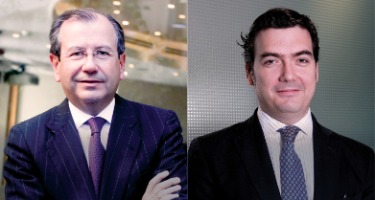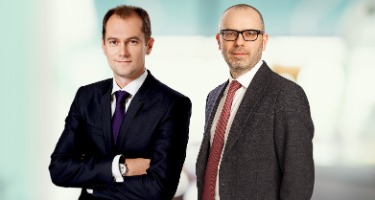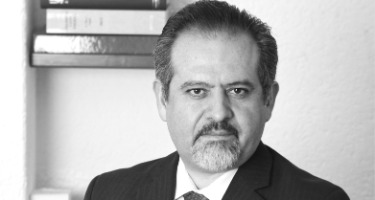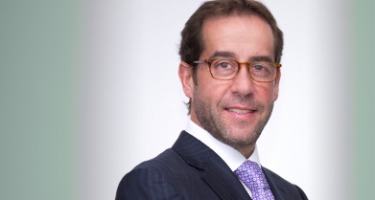In an interview with Best Lawyers CEO Phillip Greer, Michell Nader discusses Nader, Hayaux & Goebel’s 2019 “Law Firm of the Year” award for Capital Markets Law in Mexico. Read on as Nader credits the attorneys on his team who have made the biggest impact on the firm this year, and his predictions for what’s to come of the financial markets in Mexico through 2019.
What achievements are you most proud of from this past year?
If we look at the context of last year, it was an extremely complicated year from an economic standpoint. We had two factors that weighed heavily in the markets. One was whether NAFTA would be renewed, modified, or canceled with the U.S. and Canada; that put a lot of stress in the markets. And the second one was the very long presidential election period. There were a lot of questions and clients were hesitant at times to embark in new projects.
So, with those macroeconomic and political issues around you can understand that it was not an easy year for capital markets. Nonetheless, we managed to close a very large number of transactions, many of which included new structures and yielded fantastic results for our clients.
Are there any attorneys at your firm you'd like to recognize, who greatly assisted with your recent significant cases?
It would not be possible to have these and many other capital market transactions close without a great team. I would say my partners Hans Goebel, Julián Garza, Gunter Schwandt, Héctor Arangua, and Alberto Valdez stand out. So do Diego Sánchez, Mónica Ramos, and Ana Paula Telleria, who just made partner, Jenny Ferron, and a few others. And as I said before, getting to this point without a great team would be just impossible.
What are some of your expectations for the newly appointed partners? How do you see them growing the firm and guiding its long-term goals?
Well, I have a lot of confidence in both Ana Paula and Jose Humberto because they share and support the values of the firm. They are very hard workers. Clients love working with them and I think they will be a great support for many other lawyers in the firm. And will also help us lead younger generations.
Does your firm have a mentorship program and what does it do to help support your practicing attorneys?
There is probably no other firm that devotes so many resources to training and developing its associates. We frequently have sessions to help lawyers learn on the spot how to deal with certain issues. Every month, we have a presentation to the whole firm, not only to capital markets, on varied topics. One could be on infrastructure, another one could be M&A, another could be real estate, or capital markets.
Our attorneys attend these programs even if they do not fall within their area of expertise because we believe that while lawyers must have a defined expertise, they need a broad legal culture. Lawyers who have a very narrow focus, no matter how expert they are, are usually not fully effective when dealing with complex issues.
And then every month there is a breakfast for the capital markets group and we have people come in from outside the firm, bankers and other people who are very active, to talk to us. At other times, we arrange for presentations done jointly by associates and partners.
We managed to close a very large number of transactions, many of which included new structures and yielded fantastic results for our clients.
Are there any trends you've witnessed in capital markets law in the past year?
There have been several regulatory changes issued by the securities commission. There is an upcoming overhaul to the pensions law and that overhaul will impact investments of pension funds in capital markets. The bill that was introduced to congress was released yesterday and we're looking at it, but it will bring about other changes. And then changes in the market that come not from legislative or regulatory actions, but from market conditions, the increase of interest rates in the United States has obviously made more challenging certain interests because clients, especially global clients, are looking for higher returns in Mexico. And in addition to higher interest rates we're seeing the first generation of CKD funds are about to start their divestment and liquidation process. So we will see some of them selling assets to liquidate; that will create other opportunities and challenges in capital markets.
How did your firm stay agile against its competitors in capital markets?
I think first and foremost, we have an unbelievable well of talent, we are very practical, and we have a sincere devotion to clients. It’s a very difficult combination to match. And being available 24/7 allows us to stay at the forefront of the market.
Is there anything else you'd like to share with me about your firm, whether it's this practice area or the firm as a whole?
We have a fantastic culture, in part because we've had very few lateral hires. We have been able to attract the best and most compatible talent. We’re practical and devoted to our clients, and that’s something very difficult to achieve. Perhaps it sounds repetitive but it sounds repetitive because we try to instill this same culture in each and every practice within the firm. And we have been very successful doing that. This is not something that happens automatically and this is not something that can be done overnight. It's something that requires daily work, a lot of effort, and a lot of follow up.
































